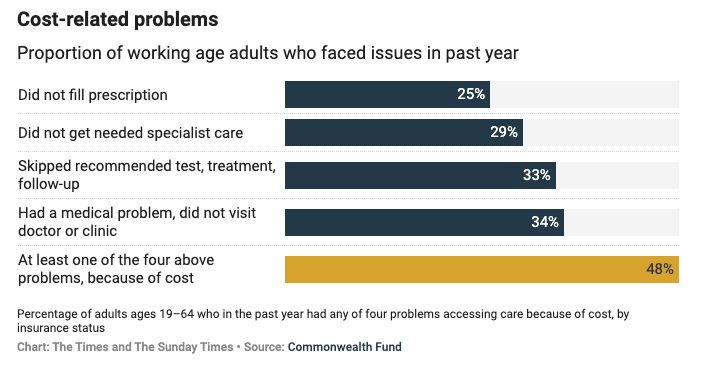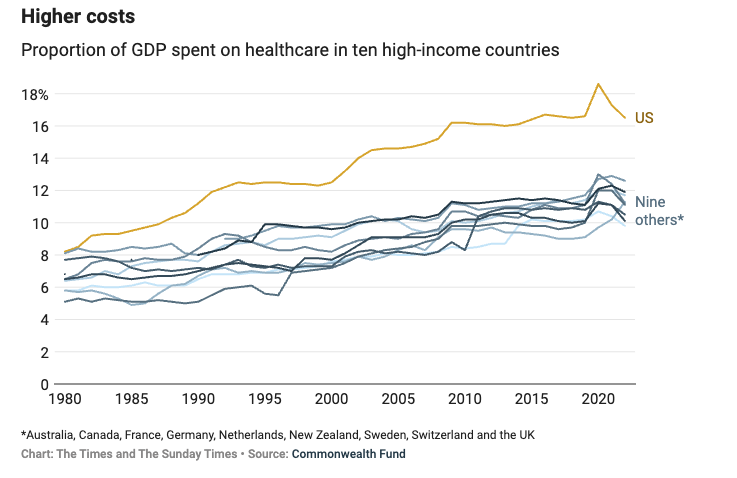National reporting
About the poor health of American healthcare
This story has some good examples of how badly American health care is failing.
The U.S. healthcare system, valued at $4.5 trillion and comprising 17% of the national economy, remains a deeply flawed and intensely bureaucratic setup—even for the insured thetimes.co.uk. Despite coverage for 92% of Americans, steep insurance premiums (averaging $8,435 for individuals and $23,968 for families) and inflated per‑person healthcare spending ($13,493, double that of peer nations) contribute to widespread financial distress en.wikipedia.orgthetimes.co.uk.
Through illustrative patient cases, the article reveals how insured Americans still face surprise costs, denied claims, and catastrophic out‑of‑pocket bills. Shockingly, procedures like a cortisone shot may get approved, while a cheaper but equally effective treatment—such as a shoe insert—can be rejected if not clearly delineated in coverage thetimes.co.uk.
Hospitals and providers, in turn, are affected by insurer practices. Wasteful care—estimated between $600 billion and $1.45 trillion annually—is driven in part by claim denials steered by AI tools and “denial nurses” employed by insurance companies en.wikipedia.orgthetimes.co.uk+1en.wikipedia.org+1. UnitedHealthcare, the nation’s largest insurer serving 50 million individuals, reportedly rejects claims at nearly twice the industry average en.wikipedia.org+5thetimes.co.uk+5thetimes.co.uk+5.
The ripple effects are stark: around 248 million claims were denied last year; one in five claims gets rejected; and medical debt burdens 20 million people, totaling $220 billion. Bankruptcy follows for hundreds of thousands annually, often due solely to medical bills thetimes.co.uk.
While policies like the Affordable Care Act have increased coverage and the Inflation Reduction Act capped insulin costs for some seniors, costs remain unsustainable thetimes.co.uk. The complexity, profit motives, and administrative overhead—marked by millions of denials and opaque billing—underscore why many describe U.S. healthcare as “broken.”
The killing of UnitedHealthcare CEO Brian Thompson adds tragic context: his death became a flashpoint in national outrage against insurers—reflecting deep discontent with systemic failures time.com+7thetimes.co.uk+7thetimes.co.uk+7.



